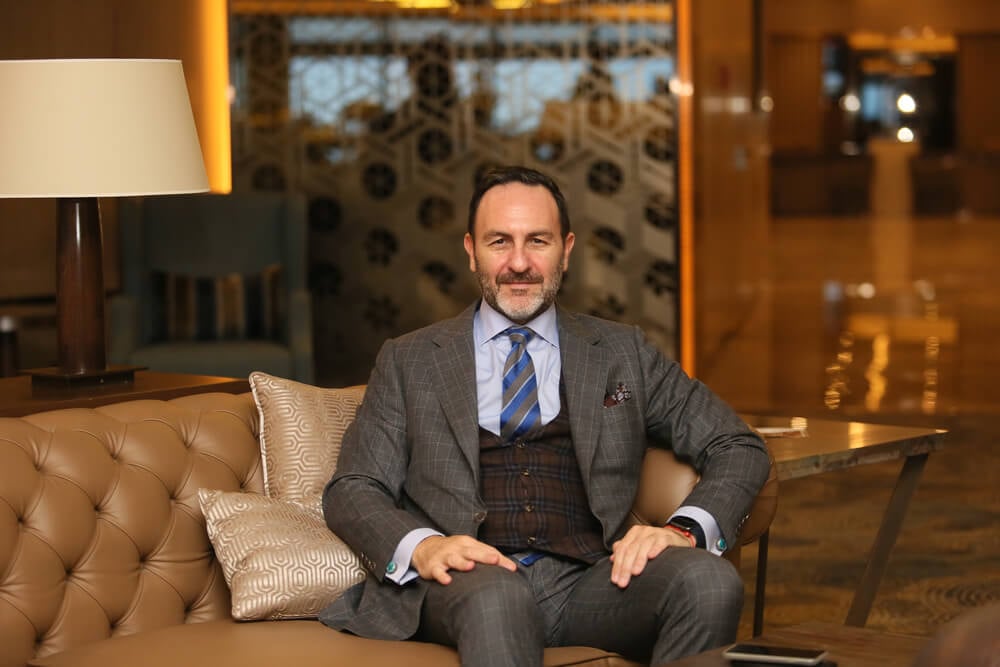We entered 2025 at such a rapid pace that, without realising it, we've already reached mid-February. While many are calling 2025 the most challenging year ever, there are some who continue to hold onto hope for the second half of the year. I count myself among them.
For this, Trump must first adjust to the presidency, from which he has been away for a long time, and in accordance with the new conditions we are in.
The world is changing rapidly, and we are in a different situation compared to eight years ago, when Trump first took office. If we look back, when Trump took office, the top five risks in the World Economic Forum (WEF) risk report were:
Weapons of mass destruction
Extreme weather events
Natural disasters
Difficulties in adapting to climate change
Water crises
Of course, many risks were mentioned, from cyberattacks to food crises, migration, and pandemics, but these were the top five according to global opinion leaders.
Over the last eight years, it's hard to argue that the items on the risk list, with cyberattacks and pandemic risks at the bottom, are less significant than the others.
There hasn't been a nuclear war, and water crises haven't dragged the world into war, but fires have turned everything to ash. Significant steps have been taken in adapting to climate change.
The process we are going through will be different compared to the past eight years
While it is acknowledged that Donald Trump himself is a risk, considering the WEF's 2025 risk report, it’s possible to predict that the process we are going through will be different compared to the past eight years.
This year, the WEF's risk classification seems to have adopted a different approach by incorporating the time factor. First, let’s look at the risk elements over a two-year period:
Misinformation
Extreme weather events
Hot conflicts between states
Social polarisation
Cyber espionage activities
In addition, issues like environmental and air pollution, inequality, forced migration, global economic tensions, and human rights violations are also in the top ten. In my opinion, this has been a more suitable approach compared to the former listing method.
Furthermore, raising awareness about their existence has served as a serious warning to global opinion leaders. It sometimes feels like a "don't say we didn't warn you" message for the inevitable developments that will come our way.
Ten-year forecasts
Even though I don't have much faith in ten-year forecasts, let’s take a look at the WEF's study, which carries the message, "Not now, but you will be dealing with these soon." According to this, the ten-year risk factors are:
Extreme weather events
Decline in biodiversity and ecosystem collapse
Critical changes in global environmental conditions
Depletion of natural resources
Misinformation and disinformation
Alongside these, risks such as the development of artificial intelligence technologies, inequality, social polarisation, cyber espionage, and environmental and air pollution are also present on the list.
Frankly, it’s clear that many of the risks we will face in two years will continue throughout the decade. However, the severity of the shock caused by the decline in natural resources and the vulnerability of biodiversity will likely become apparent in ten years rather than two.
Investors or savers thinking, "Where should I invest?" will clearly face difficulties in sustaining a healthy lifestyle, regardless of how much money or assets they might have in the future.
It is chilling to think about the conditions of nearly a billion people living in severe poverty. If only half of these risks materialise, it is evident that political systems will change completely, shifting towards a centrally managed resource distribution policy.
Transition from the nation-state to a single world government
Preparations for a transition from the nation-state to a single world government can be clearly tracked through WEF meetings. It is also possible to say that resources, from energy to food and water to minerals, will lose their national characteristics, but before becoming "global assets," we will experience the largest war in history.
No state will voluntarily put its resources at the disposal of the world’s peoples. Therefore, I continuously hear the footsteps of the “greatest war” that everyone fears.
 No state will voluntarily put its resources at the disposal of the world’s peoples. Therefore, I continuously hear the footsteps of the “greatest war” that everyone fears - Emre Alkin
No state will voluntarily put its resources at the disposal of the world’s peoples. Therefore, I continuously hear the footsteps of the “greatest war” that everyone fears - Emre Alkin
From what I see, no scenario can save us from this situation. The incessantly arming and isolating of countries, the mixing of the concepts of government and state, and the rising extreme nationalism due to hardened politics and migrations have long surpassed the level that sensible people can stop.
While people chase after investment instruments, corporate profits, and daily troubles, humanity cannot advance beyond academic discussions about the impending great danger. Some are frantically trying to profit from these risks, and some even build fortified homes for themselves.
Despite their enormous incomes and assets, perhaps they too have realised they cannot stop this trend and are trying to save themselves. In a process where billions of dollars in wealth lose meaning against a glass of water, these efforts seem ridiculous to me.